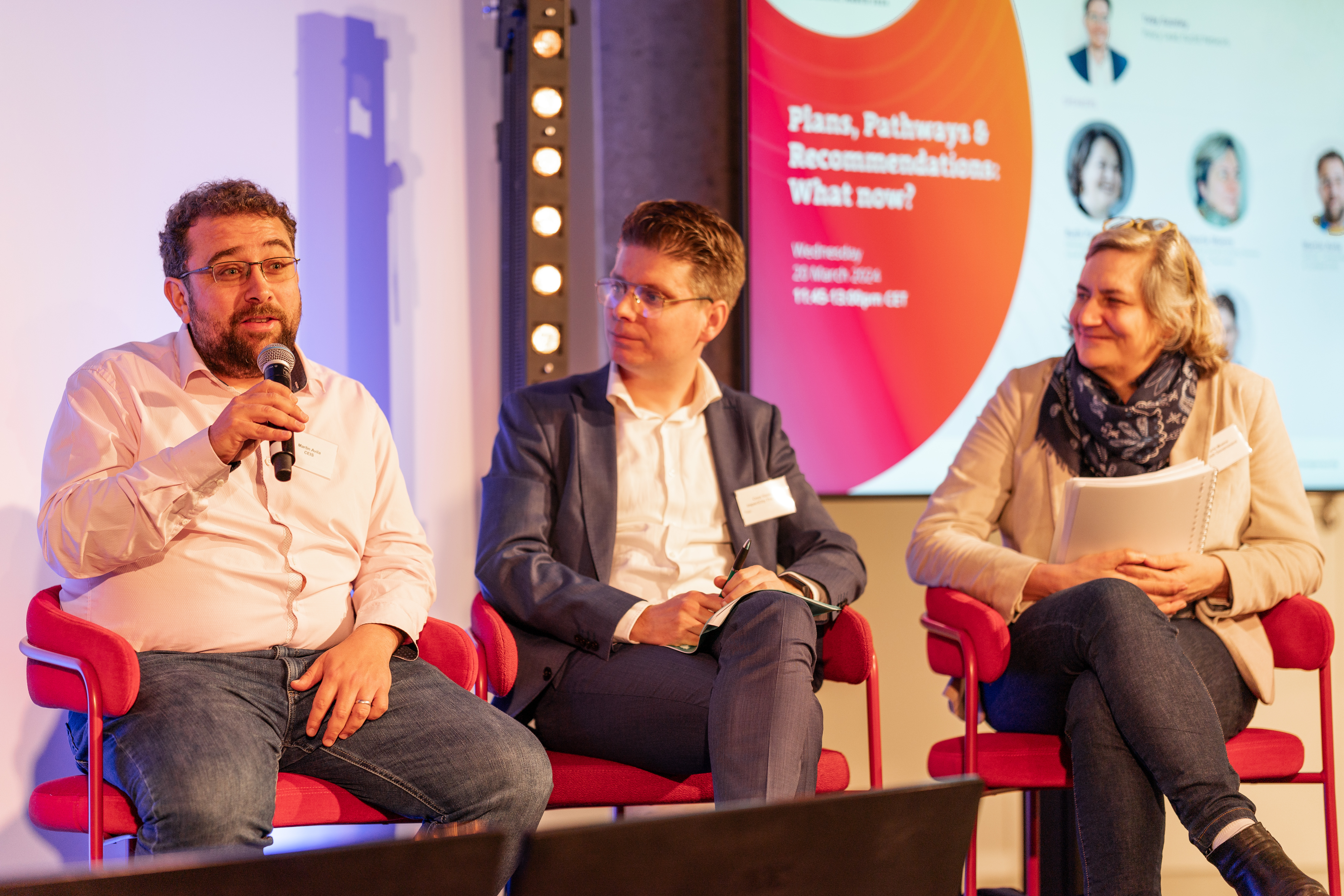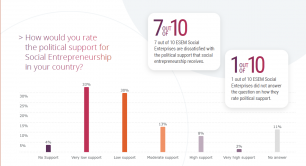'Government can either make or kill your social business': calls for greater collaboration at Euclid’s Impact Summit 2024
Let’s work together: calls for social entrepreneurs, governments and corporates to collaborate emerge from Euclid’s Impact Summit 2024.
The public and private sectors must support the social economy, not just in Europe, but around the world.
This was the clear message to emerge from discussions on the first day of Euclid Network’s Impact Summit 2024, organised around the theme “Building Bridges – From Intention to Action”.
The 2024 summit, hosted this week in The Hague in the Netherlands, brought together around 200 representatives from social enterprises, nonprofits, impact finance institutions, government organisations and corporate retailers.
In line with the theme of transforming intention into meaningful action, panellists engaged in discussions around how policymakers and private companies could go the extra mile to contribute to the social economy.
The connection with the government is really important because the government can either make or kill your social business
Public and private institutions should embrace social enterprise
Coos Santing, programme leader of ImpactCity, The Hague’s municipal initiative to support impact enterprises, said: “It’s really important to work together with the ministries and the investors and the social entrepreneurs. The connection with the government is really important because the government can either make or kill your social business.”
Speaking about his experience of how ImpactCity supported social enterprises, he said that the organisation created office space and offered subsidies to help tackle the “very practical problems” that social entrepreneurs in The Hague faced.
Speakers also acknowledged that although European governments were making progress in better supporting the social economy, there was much more work to be done globally.
Gerry Higgins, director of the Social Enterprise World Forum, said: “There’s an absence of effective social enterprise policy [around the world]. I feel very privileged to be in Europe; there is no equivalent for other continents.”
He added: “We have hurdles to get over when we try to support change. It is our job to inspire consumers to realise that there are actually businesses that are trying to do good.”
- Read more: ‘People and planet first’: SEWF launches new brand to unite social enterprises around the world
Echoing this, Daniel Nowack, head of the Global Alliance for Social Entrepreneurship, said that organisations such as his needed to continue organising events that specifically targeted policymakers from outside Europe.
He said: “The biggest role for us is to surface the voices of low and middle income countries and the role of social entrepreneurship there. How can we get governments at the G20 [2024 summit] in Brazil and the G20 [2025 summit] in South Africa to realise the potential of social innovation?”
Vera Egreja Barracho, strategic advisor and regional representative at Portugal Social Innovation Mission Unit 2030, a government initiative that promotes social innovation and social investment in Portugal, described her organisation as “a public entity that actually uses EU funds to put jargon into practice”, ensuring that the social economy was “at the core of the government”.
Now in its tenth year, the unit has worked with around 500 social businesses in Portugal. Barracho credited cross-sector partnerships with civil society and the private sector as a driver of the initiative’s success so far.
She said: “Sometimes it seems like we are talking about different players, but we are not. Universities, civil society, the private sector, the government… We are all just trying to bring agility to some dynamics [including] access to finance because sometimes bureaucracy kills innovation. We need to keep taking the red tape out of public finance.”
Asa Skogström Feldt, managing director of Ikea Social Entrepreneurship, advised others in the private sector to be conscientious about how they could support the social economy. She said: “Make sure you know what social impact you want to contribute to and make sure you collaborate with other stakeholders to achieve it.”
The system that we’re trying to build beyond is going to take a while to change. We are dealing with a thousand years of imperialism, colonialism and racism
All hope is not lost
Encouraging the audience to be optimistic about the future of the social economy, Martin Avila, CEO of Community Enterprise in Scotland (CEIS), a social enterprise support agency, said: “The future is not yet written. We are not yet at the tipping point. I think we have to recognise that the system that we’re trying to build beyond is going to take a while to change. We are dealing with a thousand years of imperialism, colonialism and racism. It may take longer than 2030 to change some of that.”

The summit took place just days after the European Parliament approved the long-awaited Corporate Sustainability Due Diligence Directive (CSDDD), a law that will require EU and non-EU companies to conduct environmental and human rights due diligence across their supply chains.
In the wake of widespread criticism that the law was watered down due to concerns of over-bureaucratisation of businesses from some EU member states, Avila told Pioneers Post: “No matter how imperfect or idealistic the idea of putting some responsibility on private sector companies, it is a step forward. It is a compromise… but as long as it’s a step forward and it’s not the last step, then it should be okay.”
Top image: (left to right) Toby Gazeley, Euclid Network, Ruth Paserman, European Commission, Vera Egreja Barracho, Portugal Social Innovation, Martin Avila, CEIS Group, Coos Santing, ImpactCity, Veerle Moens, Flemish Government
All photos courtesy of Euclid Network
Thanks for reading our stories. As an entrepreneur or investor yourself, you'll know that producing quality work doesn't come free. We rely on our subscribers to sustain our journalism – so if you think it's worth having an independent, specialist media platform that covers social enterprise stories, please consider subscribing. You'll also be buying social: Pioneers Post is a social enterprise itself, reinvesting all our profits into helping you do good business, better.



